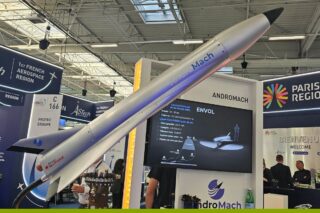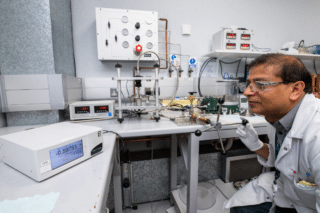Here is a curated selection of our reports and insights on plastics: their various applications, the recycling processes they undergo, the new processes in development, and how some companies are even developing sustainable plastics.
In this article, you will find valuable information on the lifecycle of plastics, from production to disposal and reuse, highlighting innovations and best practices in the industry.
1/ What Are the Different Types of Plastics?
Plastics is a derivative of oil. There are around 10 different categories of plastics. Each type of plastic offers unique benefits and can be optimized for different uses, from packaging and construction to automotive and consumer goods. Understanding the diverse range of plastics and their specific properties is crucial for industry professionals aiming to select the right material for their applications.
READ MORE
2/ What Are Smart Plastics?
igus is making products in plastic. Last year, they presented the first energy chain completely made out of recycled plastic.
“We are aware that as a plastics producer, we also want to contribute to a circular economy of plastics. Plastics is an important raw material, and it can be used for a lot of things as we show with our products. But we also know that we have to use it responsibly and at least try to reuse it as often as possible. This is why we are working with partners.”
One of their partners is a UK company, Mura Technology. They have developed a process for chemical recycling so they can make oil out of used plastic waste. And they are just starting to operate the first plant at the beginning of this year.
READ MORE
3/ Are ‘Sustainable’ Plastics Truly Eco-Friendly?
The rise of ‘sustainable’ plastics holds the potential to mitigate the global carbon footprint associated with conventional plastics. However, this innovative class of plastics still carries a substantial environmental footprint.
Traditionally, plastic has been made from fossil fuel-based chemicals like natural gas and petroleum. The first generation of new “bioplastics” are more environmentally friendly because they are made from crops like corn or sugarcane, similar to first-generation biofuels designed to provide a substitute for petrol and diesel.
READ MORE
4/ What Are the Different Plastic Recycling Processes?
Plastic recycling involves several methods tailored to the specific type of plastic being processed. With approximately ten different types of plastics, each composed of varying elements and additives, not all plastics can be recycled similarly. Thierry Gauthier, Circular Economy Advisor at the French Institute of Petroleum (IFPEN) Chemistry for Industry Center in Lyon, shed light on the current recycling processes. He also highlighted IFPEN’s innovative methods to indefinitely recycle plastics like PET and integrate biomass into recycling processes.
READ MORE
5/ Are We Going Toward Infinite PET Recycling?
How to recycle plastic indefinitely? This is what the IFP Energies Nouvelles (IFPEN) also known as the French Institute of Petroleum asked themselves. IFPEN has developed a process that will allow PET to be recycled indefinitely. The first production plant equipped with this new process will open in 2027 in France (Lyon). It aims to recycle around 30,000 tonnes of PET annually.
READ MORE
6/ Micro-Recycling Factories
Carbon Blue aims to recycle plastic waste. Founded by Stéphane Testa, the company transforms used plastic sourced from the Marseille area into unique furniture, sold locally. They plan to replicate this model throughout France and internationally. Carbon Blue’s microplastic recycling factories are already being set up in Bordeaux and maybe soon in Africa. We visited the Testa family at their pilot micro-factory in Gémenos, near Marseille.










